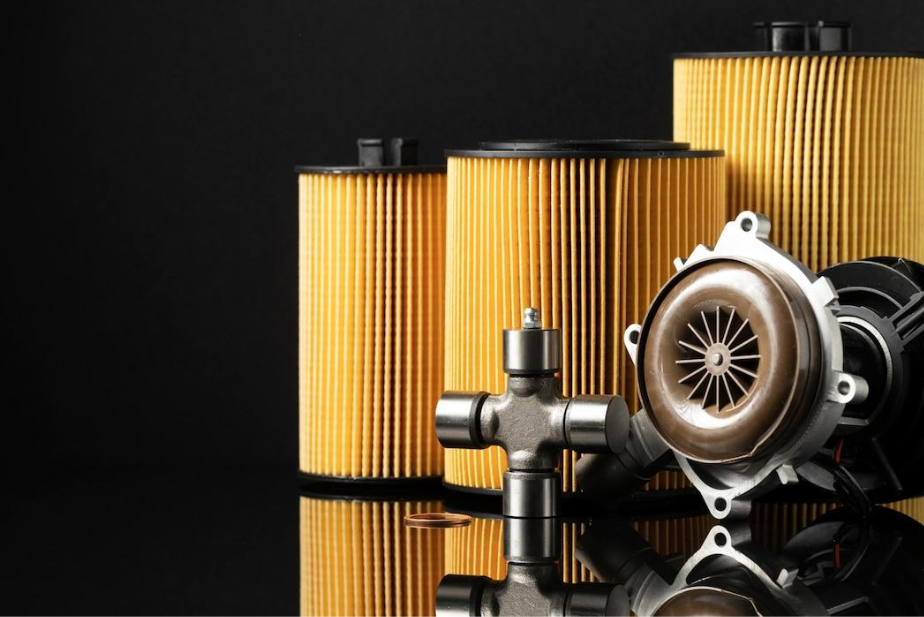In this blog, we’ll introduce you to common tractor fuel filter problems, their causes, and useful troubleshooting tips to help you better maintain your tractor. The tractor fuel filter is like a loyal “goalie”. Its main duty is to filter impurities, dust, and water in the fuel to ensure that the fuel entering the engine is pure enough.
This also means that it always guards the health of the fuel system, preventing impurities from clogging the injectors or damaging the fuel pump. Without this gadget, impurities and dirt would go straight into the engine, potentially leading to a lack of power and increased fuel consumption. Now you should be able to see why the fuel filter plays an integral and protective role in your tractor’s fuel system.
1. Clogged Fuel Filter
I would venture to say that a clogged fuel filter should be one of the most common problems encountered by tractor owners. Over time, dirt, rust, and other debris can build up and restrict fuel flow. This can lead to reduced engine power, difficulty starting, and even stalling and ignition failure. Generally speaking, most tractors recommend checking or replacing the fuel filter after every 200 to 500 hours of operation, and if you’re working in a worse environment – with more dust – you should autonomously shorten the interval between inspections and replacements. If it is excessively dirty, it should be replaced immediately. Have trouble finding a reliable aftermarket fuel filter for your tractor? Visit FridayParts.com to get the best discount now!
2. Fuel Leaks Around Filter
Fuel leaks can be caused by improper installation, damaged seals or cracked filter housings. If a fuel leak does occur, you should easily notice it – a strong fuel odor, noticeable fuel buildup and reduced fuel efficiency. To troubleshoot and determine the exact cause, start by checking for loose connections or damaged seals around the filter, which can be quickly grazed if they are loose; however, if the seals are damaged, you’ll need to purchase a new seal kit and replace it immediately. If the filter housing itself is cracked, this situation will cost you more money – you will need to replace the entire assembly to ensure safety and optimal performance.
3. Poor Quality or Incorrect Fuel Filter
Using an incorrect or poor-quality fuel filter can seriously affect engine performance, leading to frequent blockages, abnormal engine noise and reduced fuel efficiency. Always use a fuel filter that is compatible with your tractor and engine, and avoid using common or incompatible filters. Purchasing a filter from a trusted supplier, such as FridayParts, ensures proper filtration and prevents long-term engine damage.
4. Water Contamination in Fuel Filter
Water contamination in diesel fuel is a common problem that can lead to engine sputtering and black exhaust. You can also spot this problem from the dashboard warning light if your tractor is equipped with a dashboard. One of the smartest ways to troubleshoot this problem is for you to consider adding a water separator to your fuel filter, which should then be drained regularly. Additionally, using high-quality fuel and storing it in clean, airtight containers can also reduce the risk of water contamination. Don’t forget that fuel use is seasonal and low viscosity fuel is more recommended when temperatures are low.
5. Cold Weather Causes Restriction of Fuel Flow
As we said above, cold weather can gel diesel fuel, resulting in restricted fuel flow and affecting the performance of the filter. If you are sure that there is no problem elsewhere, but you often face engine starting difficulties, stalling during operation, or reduced power output during the winter months, then don’t doubt that it’s the cold weather that is to blame. To solve this problem, you use winter-grade diesel fuel and consider adding an anti-gel fuel additive during the cold season. Storing your tractor in a warm, sheltered area when not in use will also prevent the fuel from gelling and clogging the filter.
Conclusion
I’m sure you understand the importance of regular maintenance and timely replacement of your tractor’s fuel filter pair. Through our articles, you can also learn about common fuel filter problems and apply these troubleshooting tips. We wish you a silky smooth driving experience!






